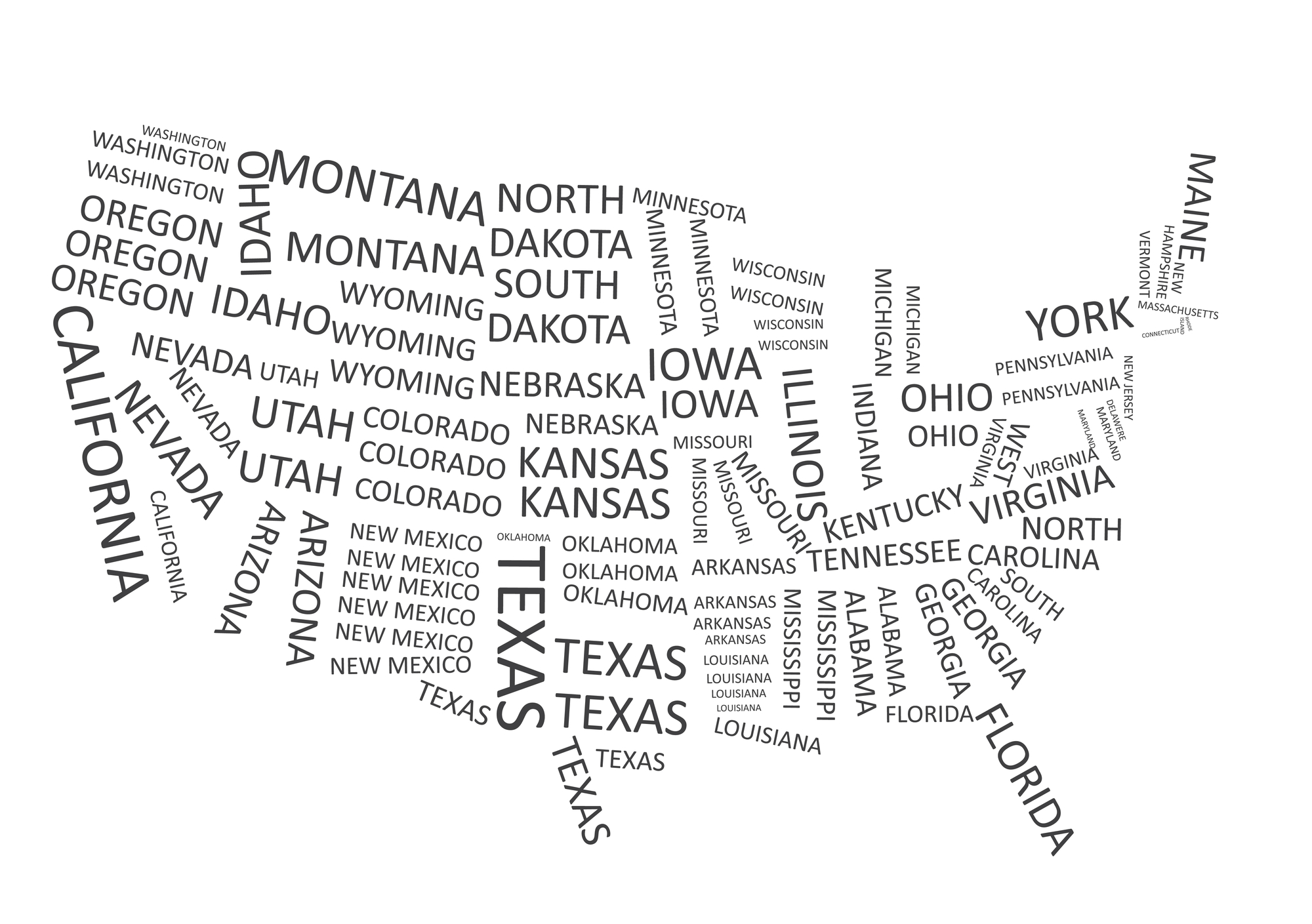As we enter 2024, below is a list of federal and state laws that all employers must be aware of.
Federal
- OSHA Final Rule on Workplace Injury and Illness Reporting requirements – amends current requirements to require certain employers to electronically submit information regarding injuries and illnesses to OSHA. This becomes effective January 1.
- NLRB Final Joint Employer Rule – Two (2) or more employers will be deemed joint employers under the NLRA if they share or codetermine matters governing employees’ essential terms and conditions of employment. This becomes effective February 26, 2024.
State-by-State
Arkansas
- Unemployment compensation – employers may notify the state’s Division of Workforce Services if a candidate fails to respond to an offer of employment or show up for a job interview, both of which will result in disqualification for unemployment compensation benefits.
- Income Tax Withholding – change reduces the number of employees from 250 to 125 for purposes of triggering the requirement for employers to file state tax withholding statements electronically.
California
- Noncompete agreements – voids noncompete agreements in any employment context that does not satisfy specific exceptions, such as a partnership dissolution, sale of a partnership, or dissolution of an LLC.
- Noncompete agreements – Another, separate bill prohibits employers from entering into or attempting to enforce noncompete agreements, regardless of where or when the agreement was signed.
- Cannabis Use – Prohibits discrimination in hiring, firing, or the terms and conditions of employment based on cannabis use during non-work hours (off-duty use), or based on the results of an employer-required drug test that detects non-psychoactive cannabis. This prohibition does not, however, apply to the building and construction industries, presumably for safety reasons.
- Another bill also prohibits employers from requesting information from an applicant related to the applicant’s prior cannabis use.
- Sexual Harassment and Discrimination – This bill establishes that complaints, reports, or other communications regarding sexual assault, discrimination, or harassment are privileged and, accordingly, protected from discovery in civil suits, such as defamation suits.
- Discrimination and Retaliation – Bill creates a rebuttable presumption against the employer in an employee’s or applicant’s claim of discrimination, retaliation, or adverse action occurring within 90 days of the employee’s or applicant’s protected conduct.
- Workplace Health and Safety – This bill will require employers to devise and implement a Workplace Violence Prevention Plan (WVPP) and train employees on the plan. This bill will also introduce additional record-keeping requirements that log or track incidents and reports of workplace violence incidents.
- Paid Sick Leave – A new bill increases the number of paid leave hours part- and full-time employees may take each year from 24 hours (3 days) to 40 hours (5 days). The cap on paid sick leave must be increased from 48 hours (6 days) to 80 hours (10 days).
- Leaves of Absence – New bill provides for a leave of absence due to a reproductive loss event, including a miscarriage, stillbirth, failed adoption, failed surrogacy, or unsuccessful assisted reproduction.
Colorado
- Drug Use – Proposition 122 will decriminalize use or possession of certain natural psychedelic substances, including psilocybin and psilocin (chemicals in psychedelic mushrooms). However, the law will not require employers to allow or accommodate an employee’s use of psychedelic medications in the workplace.
- Equal Pay/Wage Transparency – This law will require employers to post all job opportunities and promotion opportunities, along with the salary range, benefits provided, and information regarding the hiring process.
Connecticut
- Workers’ Compensation – New law extends workers’ compensation coverage to PTSD for all employees, not just firefighters, police officers, 911 dispatchers, EMS personnel, and similar employees.
- Artificial Intelligence – New law enacts rules related to AI, automated decision-making, and data privacy.
Hawaii
- Equal Pay/Wage Transparency – Expands the state’s existing requirements to make it unlawful for an employer to pay an employee in “any protected category” (listed in Hawaii’s employment discrimination statute) less than other employees doing “substantially similar work” in the same establishment.
Illinois
- Workers’ Compensation – New law provides that an employer that fails to maintain workers’ compensation insurance is subject to having its business license revoked and paying fines.
- Leaves of Absence – New law requires employers to provide up to two work weeks of unpaid leave to employees who lost a family member or household member to a crime of violence.
- Leaves of Absence – A separate law will require employees with 50+ employees to provide unpaid leave to employees who have lost a child by suicide or homicide.
- Notice Requirements – This law will require employers with remote workers to post notices required by law in an email or on the employer’s website.
Michigan
- Labor Management Relations – A new law will repeal Michigan’s right-to-work provisions, effective March 30, 2024.
Minnesota - Discrimination/Pay History – This law will prohibit discrimination in employment based on gender identity. It will also prohibit an employer from asking, considering, inquiring into, or requiring disclosure of a job applicant’s pay history during the hiring process.
Ohio
- Pay History – This law will prohibit employers with 15+ employees from questioning or screening job applicants regarding their current or prior wages, benefits, salary history, or other compensation.
Oregon
- Leaves of Absence – A new law will extend an employee’s eligibility for protected leave under the Oregon Family Leave Act to employees who are victims of certain crimes.
- Discrimination/Retaliation/Workplace Safety – This law will prohibit employers from discriminating or retaliating against employees who refuse to perform work that would expose them to serious hazards, if the employee acted “in good faith and with no reasonable alternative.”
Rhode Island
- Wage and Hour – A new law will impose a higher criminal penalty against employers involved in wage payment violations and employee misclassification.
Washington
- Unemployment – A new law will exclude certain corporate officers or officials from being eligible to receive unemployment benefits.
- Cannabis Use – This law will prevent employers from discriminating against a prospective employee due to the person’s cannabis use while off-duty or away from the workplace or due to results of an employer-required drug test indicating the presence of non-psychoactive cannabis metabolites.
In summary, the new laws are very complex. Employers should consult with an employment law firm in order to ensure they are in compliance.
About Us
Oberman Law Firm represents clients in a wide range of practice areas, including private equity, M&A, healthcare, corporate transactions, intellectual property, data privacy and security, regulatory compliance and governance, cross-border transactions, labor and employment, construction law, litigation, private clients’ services, corporate restructuring, and white-collar and governmental disputes.
As a firm, we offer the highest quality legal advice coupled with extraordinary and tailored service to deliver exceptional results to our clients. Our philosophy is to invest deeply in the brightest legal talent and build dynamic teams that operate at the pinnacle of respective practice areas. We believe in empowering our attorneys, encouraging entrepreneurialism, operating ethically and with integrity, and collaborating to bring the very best to every client engagement. These principles have guided us in building extraordinary and successful long-term partnerships with our clients.





